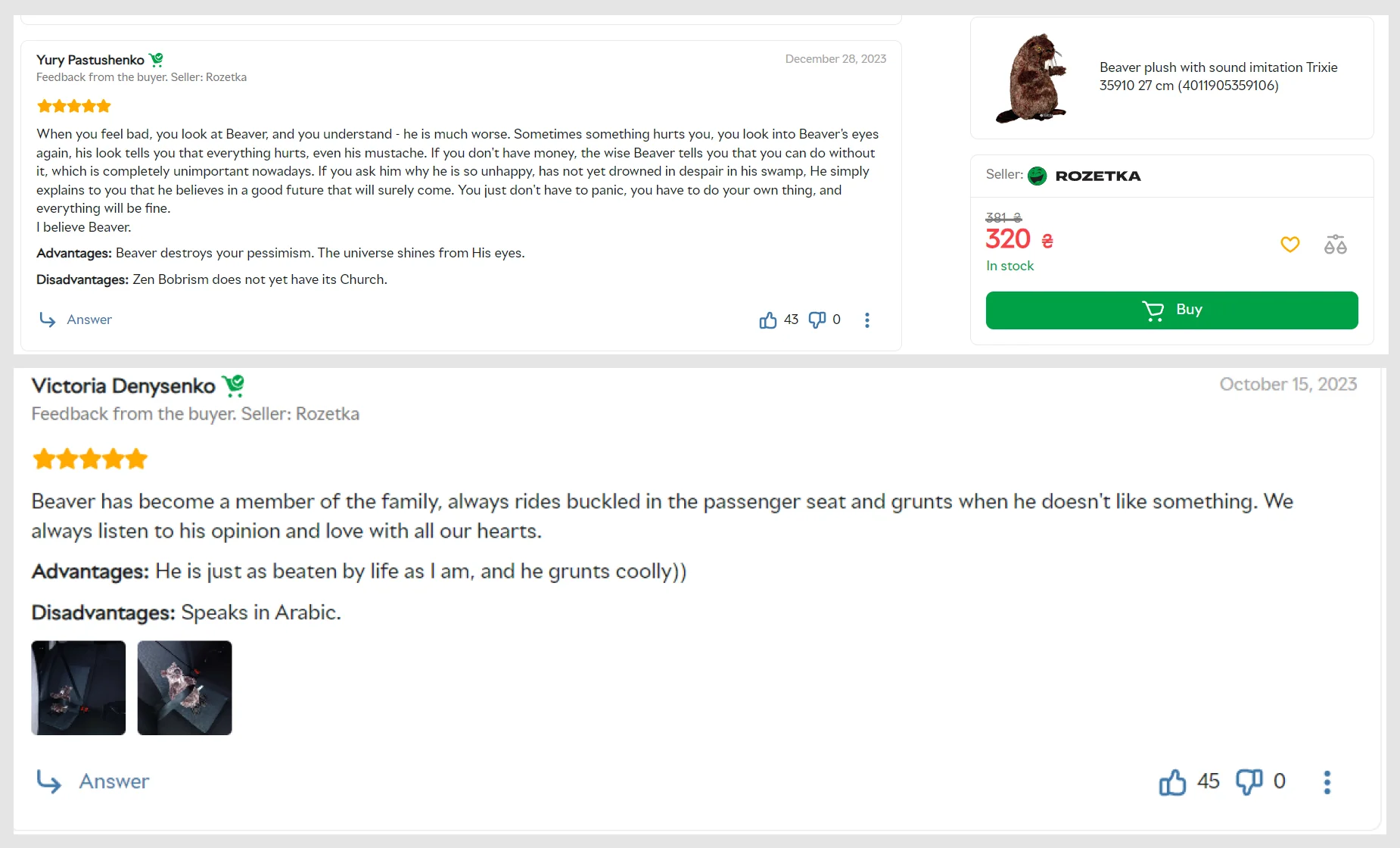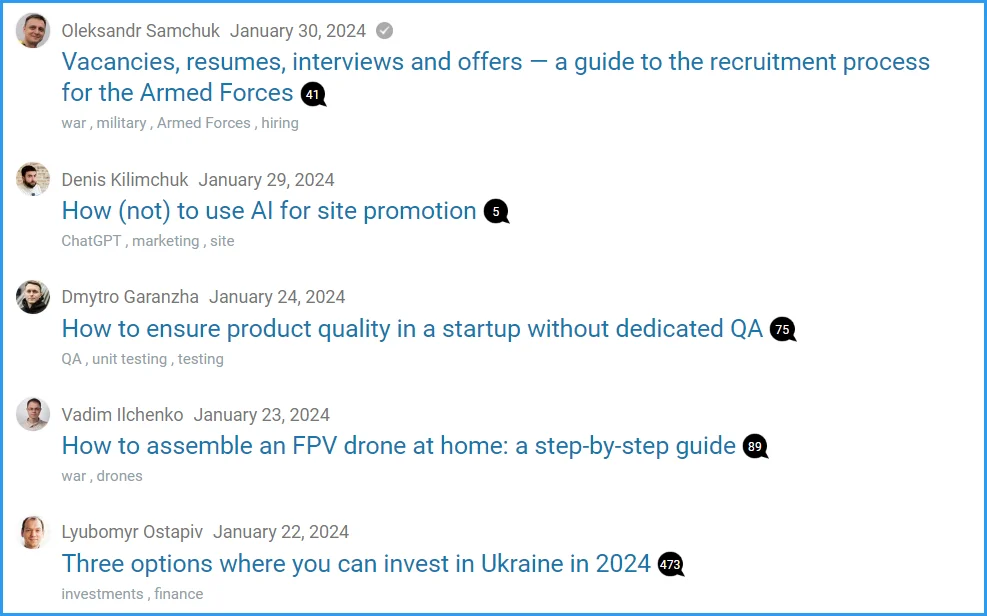
On some websites, there are many comments, such as on DOU, where every article gathers dozens of messages. While on others, there are none for years. One might think that the first case is about interesting sites, and the second – about uninteresting ones. But this is not necessarily true. Sometimes people stay for communication in related social networks, sometimes they simply do not see the need to express themselves. However, comments are still necessary for your website, so let's figure out why and how to attract commentators to your blog.
Why comments are important for SEO and increasing business audience
The ability to leave comments on articles and posts in a blog is well received by search engines and helps promote the domain to the top: it shows that the site is open for communication.
Google, in particular, explains the importance of comments for a blog or website from an SEO perspective, and its opinion is worth something. Search Engine Journal, citing Google's search advocate John Mueller, wrote that comments, while not being a standalone ranking factor, can still have a positive impact on site promotion. If such comments are:
-
Relevant to the page's topic.
-
Correct (without spam links, violations of the law, etc.).
Moreover, the frequency of comment deletions also affects search.
This helps the search engine better understand the content of the page, its relevance to queries, and how 'alive' the site is.
Comments, if interesting to users, can increase the time spent on the page, especially if people are engaged in a discussion.
In addition to SEO, there is also a regular human factor: people see sincere reviews, answers to questions, the company's communication style, and this fuels interest. The site's materials receive feedback, live reviews, thanks to which the content can be improved in the future.
However, there may be certain problems with attracting commentators.
Read also: What is tone of voice - what brand tone to speak to your audience
How to encourage your audience to comment on blog articles
Step one – enable commenting. This option is usually not available by default, so it should be added to the site.
Here are some simple ways to add a comment widget. The choice is yours. It might be worth asking your audience about this beforehand: for example, raise the question in a related group or on the relevant social media page. This will be an additional topic for discussion with readers. Convenient commenting is the first step towards receiving comments. Let there be not too many captchas, the need to log in or re-login, a complex interface, nothing that prevents quickly leaving a message.
Then the interesting game of 'catch the commentator' begins, based on ordinary interpersonal networking relationships.
Let your readers know that they can leave a comment
Announce through all communication channels that you are now waiting for comments directly on the site. If you are actively present on social media, people may be more accustomed to writing there. Therefore, it is worth repeating this message not once, but, say, once a week, and adding it to your email newsletter, if you have one.
When communicating with fans of your business on social media, keep in mind that in order to leave a comment directly on the site, they need to log out of the social network somewhere else. Users don't like extra steps, so you'll have to motivate them.
When announcing – encourage commenting
Every time you announce a new blog post, article, or product appearance on social media, encourage leaving a comment. Ask users if they like the material, if they have anything to add, or if they want to point out a mistake.
Give commentators an incentive
The incentive can be both material and non-material. Non-material incentives are attention. For example, people like to talk about themselves, so you can ask them to share their experience using a particular product, their communication experience, or their experience in finding answers in the comments. Even a call for a funny exchange in the comments can work. For example, you can mention the flood of funny comments on the Rozetka website about a beaver toy that was initially intended for dogs but became a pleasant souvenir.

It is important for commentators who actively contribute to the site to feel important. You can provide them with some symbolic rewards in the form of e-cards, appreciate their experience in responses. It is worth giving active commentators the opportunity to influence the content of the blog, if it is a blog, or some aspects of work: for example, choose from several logo options, the next post topic, a hero for an interview, and so on.
There may also be purely material incentives, such as:
-
providing authors of interesting comments with discount codes;
-
organizing a comment contest with a prize.
Always respond to comments
It is especially important to do this if the comment is lengthy, the person asks a question, or shares their experience. If you participate in the discussion, contributors will respond, and communication on the site can become a pleasant habit.
Read also: How to verify a user on the site: calls, SMS, e-mail
Write controversial posts
The most cohesive communities discuss not the color of the next kettle model, but something sharp. These can even be fashion change topics, but ones that evoke the most contrasting opinions: boat shoes or sneakers with a classic dress? Plus size or exclusively slim models? High fashion or 'some incomprehensible stuff'? You can ask readers if they think it's worth following a certain fashion trend and watch the discussion. You can ask something about career plans, the latest technology news – depending on the blog's topic. The main thing is to be prepared for controversies of varying degrees of heat.
How to moderate and filter comments
First of all, as we've already discussed, comments should be given attention, thanking the contributor for sharing their experience, asking clarifying questions. The latter - only if everyone is not actively talking to each other. Over time, communication between site visitors can become informal and without active moderation. What you definitely shouldn't do is delete comments just because you didn't like them. There are only a few reasons for deletion:
-
insults, threats, violations of the law;
-
spam, advertising especially with links to other sites, not agreed with you;
-
off-topic, if you have set such a rule in advance.
Search engines 'dislike' sites where comments are often deleted. But if you leave comments processed properly, it evokes respect and a feeling that your site is as honest as possible with users.
Read also: What a Heat Map of a Website Can Reveal and How to Create One
Service for working with comments
It is impossible to compile a single list of the best services here, as there are different plugins and extensions for different systems. However, here are the options that would be useful to look for when choosing:
-
the ability to highlight individual comment threads when users reply to each other;
-
option for marking important comments;
-
ranking by relevance, popularity;
-
hiding individual threads;
-
the ability to quote part of the text from the comment being replied to;
-
moderator roles, who can delete comments, who can only make comments.
Not all of these options will be available everywhere, but when considering plugins, it's worth taking them into account.

DOU indeed has a vibrant community with active commenting. The ability to see the number of comments on each article can be a great way to gauge engagement and encourage further discussion.
How to organize comment moderation
To organize comment moderation, it's important to first determine who on your team will be responsible to avoid misunderstandings.
Next, you should agree on certain rules: under what circumstances a comment is deleted, how to respond to the most common questions, etc. Most importantly, you should have a general idea of how to handle negative or offensive comments.
This is probably the most important question: what to say if we are insulted. Here is an interesting instruction on dealing with negative reviews on external sites, which is also helpful for moderating comments on a blog or website. However, it focuses on unfair negative comments, and there may be cases where users are rightfully upset. Here are some basic rules for dealing with such comments:
-
do not react emotionally;
-
do not use repetitive quick responses;
-
clarify as much as possible what exactly upsets the customer and thank them for the feedback;
-
if it is not a review of a product, try to clarify your position, if it is a review of a product or service provided through your site, you can try to rectify the situation (replace the product, offer a discount on the next purchase, a small gift) and ask for an apology.
It's very important for the person responsible for comments to be able to read them carefully, without succumbing to emotions, and to respond calmly, thanking for the feedback and defending their position thoughtfully, without negativity towards the reader. Even if the reader remains dissatisfied, the response will remain on the site, and future readers will see that they were communicated calmly, politely, and professionally. This is very good for the site's reputation.
By constantly moderating comments, recognizing the contribution of each active participant in the discussion, and encouraging participation in discussions, over time you can form an loyal community. It will keep the site "alive", provide feedback, and show search engines that these pages are not only updated but also useful.










